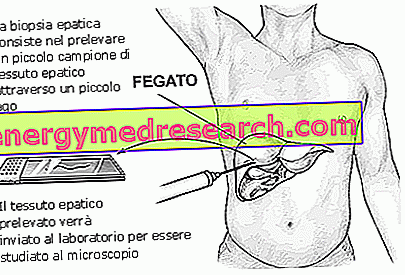Related articles: Cerebral ischemia
Definition
Cerebral ischemia is a condition caused by a reduced blood supply to a more or less extensive area of the brain. This area, therefore, does not receive enough oxygen and nutrients; if the situation is not resolved quickly, spontaneously or through a timely therapeutic intervention, the brain tissue undergoes suffering. Some neurons die when the perfusion is 5% lower than the norm, for a time exceeding 5 minutes; however, the extent of the damage depends on the severity of the ischemia.
Cerebral ischemia is usually caused by small blood clots or emboli that partially or completely occlude a blood vessel, reducing direct blood flow to the brain.
The atherosclerotic plaques predispose to the formation of thrombi that progressively restrict the lumen of a cerebral blood vessel, reducing the blood flow downstream of the obstruction. Less frequent causes of thrombosis include vasculitic diseases and inflammatory processes secondary to diseases such as meningitis.
Emboli, on the other hand, are blood clots that come from other parts of the body and are transported through the bloodstream; often, they are of cardiac origin, but may consist of fragments of atherosclerotic plaques or air (in case of decompression sickness).
The conditions that cause hypercoagulability and hyperviscosity of the blood (eg, polycythemia, thrombocytosis and hemoglobinopathies) increase the risk of cerebral ischemia.
Most common symptoms and signs *
- Tinnitus
- Aphasia
- Agnosia
- Altered color vision
- Fleeting love
- Apnea
- Apraxia
- Ataxia
- athetosis
- blepharoptosis
- dizziness
- cataplexy
- Coma
- Convulsions
- Korea
- Dementia
- Dysarthria
- Dysphagia
- Temporal and spatial disorientation
- ecolalia
- Brain edema
- hemianopia
- hemiparesis
- Hemiplegia
- Insomnia
- hyperreflexia
- Intracranial hypertension
- Hypoaesthesia
- Hypoxia
- Lethargy
- logorrhea
- Headache
- Mydriasis
- myoclonus
- Miosi
- Cerebral Death
- Nausea
- Nystagmus
- Misaligned eyes
- Paresthesia
- Memory loss
- Loss of coordination of movements
- Loss of balance
- Loss of memories
- Polyuria
- presyncope
- Narrowing of the visual field
- Drowsiness
- Vegetative state
- Confusional state
- Fainting
- Tremors
- thrombocytosis
- Dizziness
- Double vision
- He retched
Further indications
The symptoms depend on the affected brain area. Cerebral ischemia typically begins with an intense headache, followed by a progressive alteration of the state of consciousness and a sudden neurological deficit, referable to a specific vascular territory. Affected patients may experience muscle weakness in one half of the body, loss of sensation or numbness in the arms or face, eye problems in the eye or diplopia. Other typical manifestations are the appearance of dizziness, drowsiness, problems with walking and maintaining balance, difficulty in speaking and understanding others' speeches.
In some cases, the interruption of the blood supply is only temporary, not extended, and the affected functions improve spontaneously within a few minutes or hours (in this case we speak of a transient ischemic attack). If the tissue has undergone ischemia, but is not yet irreversibly damaged, in fact, an immediate restoration of the blood flow can reduce or heal the lesion.
Other times, the ischemia lasts a long time and the symptoms go on beyond the 24-48 hours; in these cases we speak of a real stroke (one of the major causes of permanent disability and, in the most complicated cases, of death). The mechanisms of ischemic damage include edema, thrombosis of small vessels and infarct with cellular necrosis. Edema, if severe or extensive, can lead to an increase in intracranial pressure.
The appearance of the first suspicious symptoms should prompt you to consult a doctor immediately. Ischemia must be distinguished from other causes that determine similar focal deficits, such as hypoglycemia and hemorrhagic stroke. To confirm the presence and extent of ischemic stroke and to exclude a cerebral hemorrhage, a computerized tomography or an MRI is performed.
In relation to the cause of ischemia, thrombolytic (acute phase) or anticoagulant therapy and carotid endarterectomy allow damage to be limited and can help reduce the risk of recurrence.



